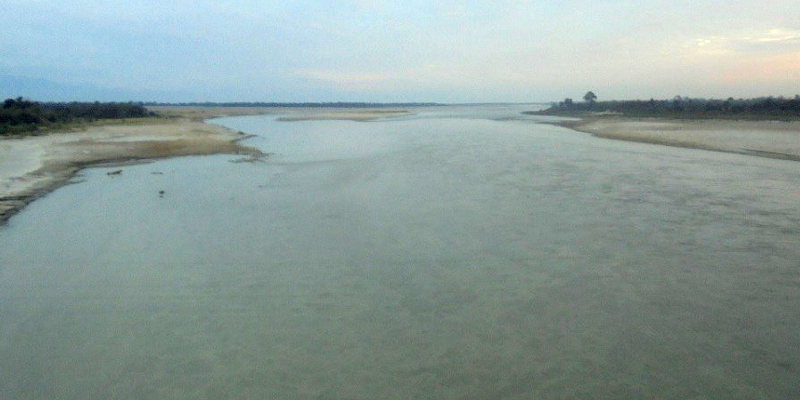The mystery behind the darkening of the Siang River in Arunachal Pradesh finally seems to have found a scientific explanation i.e., earthquake in Tibet. A report of the river earlier stated that turbidity level of the Siang River had increased drastically, making it unfit for humans and aquatic life in the region. The local people were witnessing this change for the first time in many years.
A report by the Wire asserted that the darkening of the river had not been caused by man-made actions as was initially believed. The supposed plan of China to divert the river flowing towards India has been a major cause of concern. China’s plan to irrigate the Taklamakan desert led many to believe that the Siang River, which flows for more than 2,000 km inside China, had been subjected to turbidity because of construction activities.
However, more research into the cause of the turbidity revealed that Tibet had been rocked by more than two earthquakes in the month of November. Although no aftershocks were recorded, the earthquakes led to massive landslides, triggering a vast volume of material to wash together with the river.
The Wire also reported, “…the largest landslide of the year and catastrophically larger than the landslide of April 9, 2000, on the Yigong-Tsangpo, a major tributary of the upper Tsangpo river. The Yigong slide was caused by a similar series of events. Two earthquakes (3.5 magnitude and 4.6 magnitude) struck the Zhamu Creek on April 9, 2000. The landslide blocked the floodplain river creating a dam area of 2.5 square km and 90 metres deep. The natural dam gave way on June 1, 2000, within 12 hours, flooding areas for days all the way to Assam. This was the biggest outburst flood from a landslide-dammed lake ever documented in modern history. The surge swept away large forest areas and several bridges along the Siang.”
Usually, the Siang River is blue after November. However, the intense landslides have precipitated the discolouration of the river, leading many in Arunachal Pradesh to raise alarm over the situation of the river.

